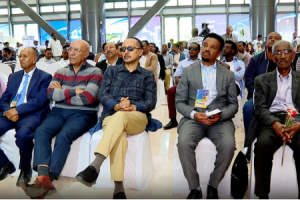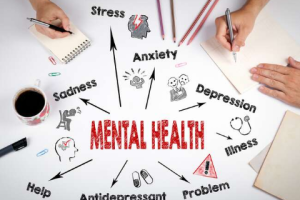
Despite the multifaceted efforts exerted to empower girls and women: and fully ensure their rights, achieving gender equality and social justice seem to be a thing that is so close yet so far.
Even though countries pulled out all the stops to narrow gender disparity and ensure the rights of women by devising numerous gender-responsive policies and strategies as well as linking their national development agendas in a way benefitting women, attaining gender equality still remains a daunting task. As a result, even after decades, promoting women’s political, social and economic benefits continue to be unresolved matters across the world. It is common knowledge that these days, millions of girls and women face gender related discrimination and challenges.
Strangely enough, despite the successes achieved so far, the gender gap across the globe is increasing and expanding alarmingly.
According to a recent report issued by the United Nations agencies, gender gaps worldwide are widening, instead of narrowing. In such a way, they are moving further and further away from the 2030 Agenda.
In the month that International Women’s Day was celebrated, UN-Women predicted that by 2030 a quarter of women will suffer moderate or severe food insecurity, hence the need to reduce gender gaps in agri-food systems, which would boost the global Gross Domestic Product by almost one trillion USD.
In this regard, the Food and Agriculture Organization of the United Nations (FAO) warned that the existing gender disparity is most evident in rural areas with limited access to agricultural assets and inputs and wages up to 18.4 percent less than men in this type of employment.
Existing inequalities due to discriminatory social norms increase women’s vulnerability to hunger and poverty. In 2022, some 388 million women were living in extreme poverty, and 27.8 percent of them were severely or moderately food insecure, the report further stated.
A recent annual Summit, Women Political Leaders (WPL) 2024 Summit, which convened some of the high-level women political figures, prominent dignitaries, policymakers, and advocates from across the globe, including President Sahle-Work Zewde and Greek President Katerina Sakellaropoulou and held in Athens, Greece also highlighted the importance of strengthening the position of women in every aspect, including in political leadership positions.
As it was stated at the Summit held under the theme “Democracy for the 21st century”, increasing the representation of women in political leadership has a profound impact on societal progress.
In her keynote speech delivered at the Summit, President Sahle-Work Zewde also reiterated the need for bringing more women to positions of leadership.
As to the President, these days, democracy is backsliding and when democracy is under threat, its adverse consequences for the rights of women are very clear. This year [2024], as some call it, is a record year for the reason that about 64 countries will hold elections. As it is known, election is one of the most important aspects of democracy and it is really vital in any given country for various reasons. But holding elections alone does not make it free and fair. Women, who constitute the majority of the population, are electorates. So, the logical conclusion of the fact is that only men make it to the top position; women are the one contributing in a substantive manner to bringing men to power. So, if we want more women in a higher position, things have to be changed, she underlines.
“There needs to be a proportional representation in our parliaments for inclusivity. There is a need for women to be at the table of power. In many situations, we have seen elections becoming a source of conflict when it should have been a process by which we elect a new person or give another term to the other. Unfortunately, elections are also a source of conflicts that parliaments are too often not representative of the society as well as political forces; and there is a need to introduce a proportional representation in order to make democracy alive in our respective parliaments, senates and different assemblies.”
Much has been said on all these issues. There is a pressing need for women to be at the table of power where they can decide because their participation is a fundamental prerequisite for gender equality, to make decisions, effect change and indeed to genuine democracy.
According to her, this has to be really something that we have to achieve because it has been proven that women will give higher attention to women issues that they cannot bypass- for women to be candidates, to hold political positions, joining or creating their own political parties. Unfortunately, most of the time, they have not been successful because the mentality has not changed.
“Women should lead change. We should change the nature of power and not power changing the nature of women. I think this has to be clear in our mind. We cannot afford not doing something as it will not come out of the blue, but through concerted efforts of all,” the President stressed.
According to her, African leaders have goals to improve the continent on the basis of the African Union (AU) 2063 Agenda and called for more efforts to address challenges with direct impacts on women, such as unconditional change of government and related issues.
“Africa is the continent of the future. Africa is a young continent where the average age is 19, and a rich continent, but also the poorest of the poor, we have to do something to change this,” she stressed.
As in Europe or anywhere else in the world, African women must be empowered to ensure that we are all in this together, she urged. Mentioning that currently there are only a few women in senior management positions, the President emphasized the need to increase the number.
President Sahle-Work also called for collaboration and cooperation among all stakeholders to address the challenges that women face today. She also urged women leaders to include gender equality on their agendas.
“Different attacks and harassment against women are increasing day by day. We need to make efforts to ensure that any form of violence against women is addressed,” she concluded.
It is to be recalled President Sahle-Work was the recipient of the WPL Trailblazer Award in 2023 in Brussels.
WPL, a global network of women politicians, has a mission of increasing the number and influence of women in political leadership positions.
BY ELIZABETH MENGISTU
THE ETHIOPIAN HERALD THURSDAY 18 APRIL 2024





